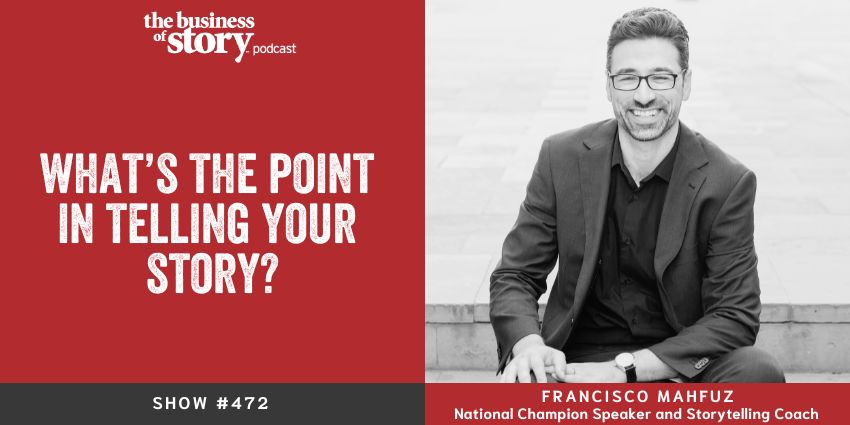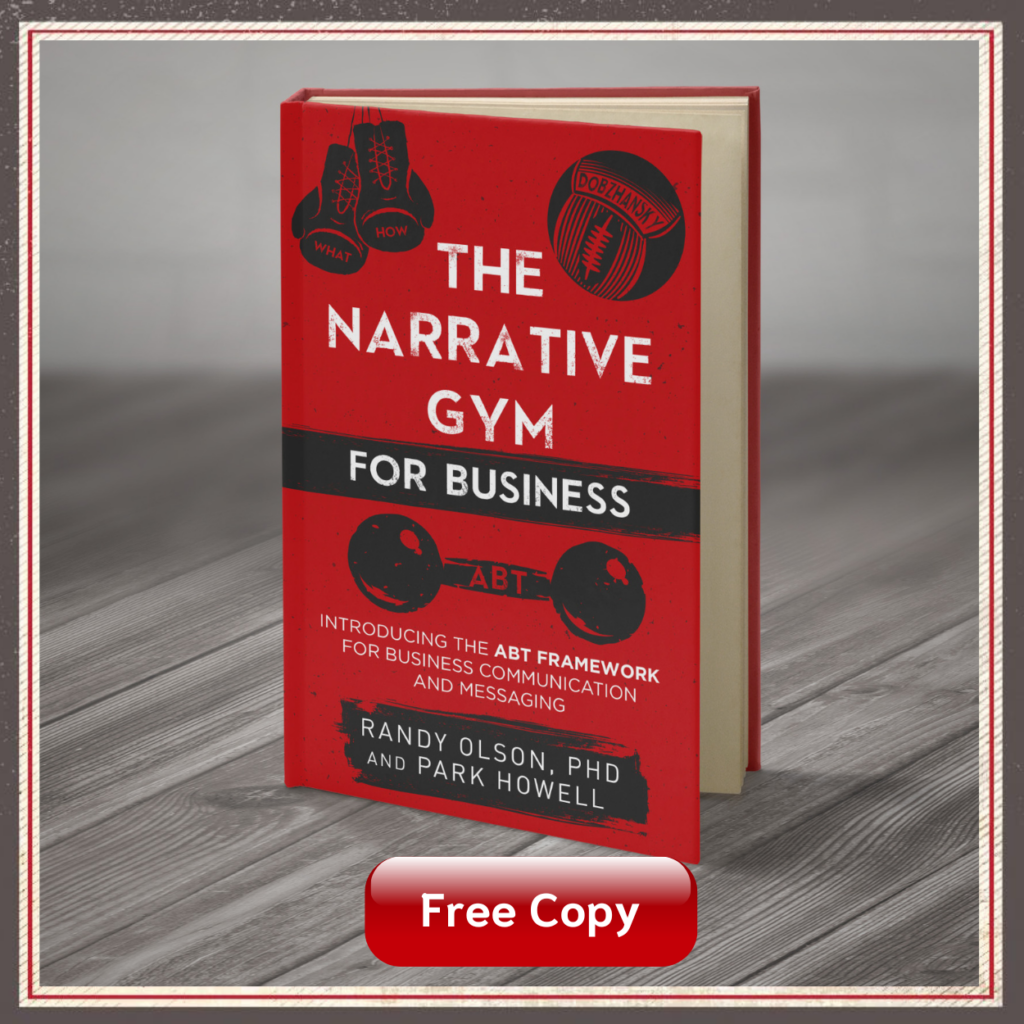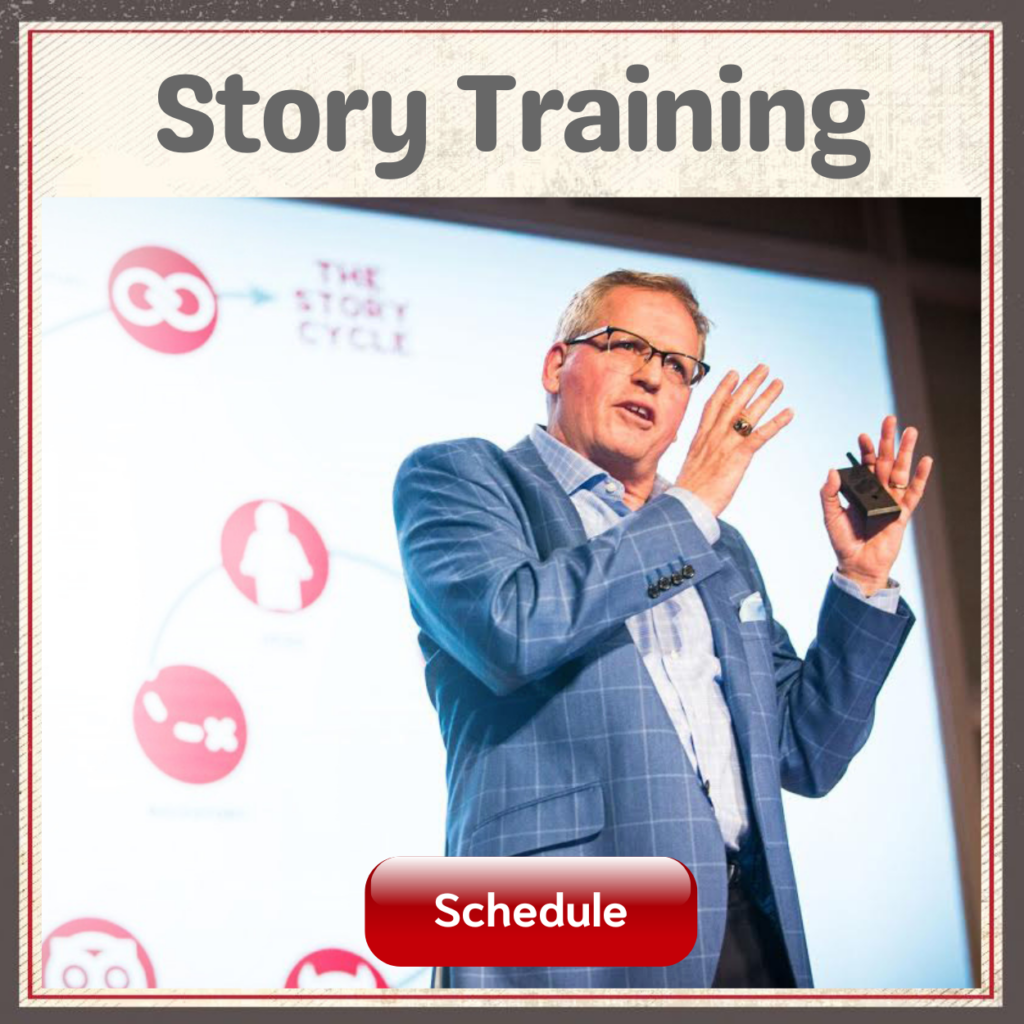
#472: What’s the Point in Telling Your Story?
I was sitting in a Tucson hotel conference room watching his PowerPoint presentation when I thought a 3D pterodactyl would leap from his deck and chomp off my head.
The “He” I am referring to was a brilliant social scientist from Phoenix presenting to a group of nonprofits about nutrition deserts in, well, the desert.
At least that’s what I think his big idea was because he was so obtuse about the needs of his audience that he never got to his point.
His slides were so crammed with numbers, charts, lines, and scribbles that it occurred to me that they were busier than an Autosterogram.

That’s a big word for those two-dimensional images that when you stare at them they create an optical illusion revealing a three-dimensional image.
That’s when my exhausted brain chuckled at the idea of a 3D dinosaur emerging from his intricate maze of detailed data.
Maybe he was the dinosaur in the room rendering his message extinct by the meteor of metrics he projected on us.
Another brilliant mind mired in his message. So sad.
“What IS HIS POINT?” I still wonder.
Francisco Mahfuz, a National Champion Speaker and Storytelling Coach joins us today to ensure this doesn’t happen to you or me.
Francisco has always loved speaking, even before he had anything useful to say, or so he says.
Global organizations trust his approach to point-filled storytelling to inspire teams and individuals to communicate more effectively through intentional storytelling. His clients include PepsiCo, HP, the United Nations, and Cornell University.
Takeaways:
- Start the story as close to the end as possible to grab the audience’s attention.
- Include dialogue to make the story more engaging and real.
- Replace data and logic with compelling anecdotes to connect with the audience.
- The biggest mistake in storytelling is not knowing your point or how to support it.
- Successful TEDx talks require an idea, a relatable story, and a logical argument.
- Simplicity and relatability are key factors in the success of TEDx talks.
Chapters:
- 00:00I ntroduction and Background
- 04:34 Discovering the Power of Storytelling
- 08:45 Why Storytelling and When Did You Know You Were a Good Storyteller?
- 12:24 The Limitations of Storytelling Advice
- 16:16 Crafting Engaging Stories
- 21:53 The Power of Storytelling
- 26:53 The Biggest Mistake in Storytelling
- 30:12 The Elements of a Successful TEDx Talk
- 35:21 Creating Empathy and Authority through Storytelling
- 41:59 Eliminating Objections and Presenting a Paradigm Shift
- 43:34 The Importance of a Clear and Actionable Idea
Links:
- FranciscoMahfuz.com
- Francisco Mahfuz on LinkedIn
- The Story Powers Podcast
- Park Howell on The Story Powers Podcast
- The TEDx Sock Talk: https://youtu.be/6F6m9CGFnk0?si=PAI51l0KI3DOaqzZ
- The TEDx Crossing the Great Lakes talk: https://youtu.be/rjgnbrGq30I?si=0udwAlCgfyfpFVzy
Popular Related Episodes You’ll Love:
- #348: The Sale Is in the Tale: 5 Storytelling Secrets with John Livesay
- #418: How to Use the Story Cycle System™ to Make Your Presentations Vastly More Persuasive with Park Howell
- #461: Learn the Presentation Secrets of a Viral TEDx Creator with Ashley Stahl
Your Storytelling Resources:
Connect with me:
- Instagram: https://www.instagram.com/parkhowell/
- Facebook: https://www.facebook.com/groups/BusinessOfStory
- YouTube: https://www.youtube.com/channel/UC0ssjBuBiQjG9PHRgq4Fu6A
- Twitter: https://twitter.com/ParkHowell
- LinkedIn: https://www.linkedin.com/in/parkhowell/
- Website: https://businessofstory.com/abt/
#StoryOn
 Listen To More Episodes
Listen To More Episodes











